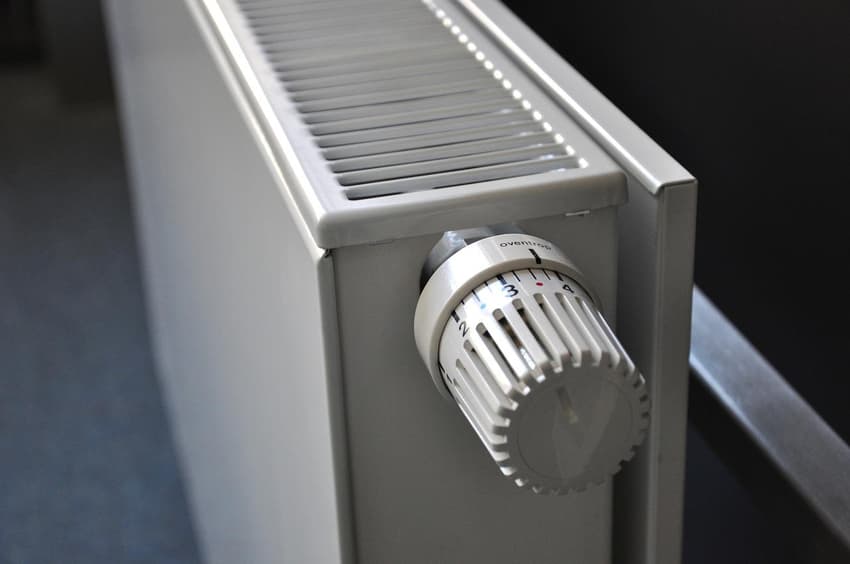'Very difficult': Why Switzerland fears a Russian gas embargo

Much has been said about Switzerland’s dependence on Russian gas, with some claiming the country depends on this supply, while others saying it doesn’t. What is the real situation?
Natural gas meets about 15 percent of Switzerland's energy requirements. It is used mostly for cooking and heating.
Though it buys most of this energy source through various European distribution channels, almost half of Switzerland’s supply — an estimated 47 percent — is of Russian origin.
While Switzerland is not boycotting Russian gas, Moscow has been threatening to cut off supplies to Europe, having already turned off the tap to Poland and Bulgaria.
If this were to happen, it would be "very difficult" for Switzerland, according to Swiss President Guy Parmelin.
The reason is that “Switzerland is totally dependent on oil and gas imports. We have wanted to minimise this dependency for a long time, for example with alternative energies, but this takes time”, Parmelin, who also acts as Switzerland’s Minister of the Economy, said in an interview.
READ MORE: How would an embargo on Russian energy impact Switzerland
Nevertheless, in the event that Moscow stops deliveries, the Federal Office for Economic Supply (OFAE) can minimise the damage, as Switzerland has mandatory reserves.
In order to allow for this, the population would need to curb its use of gas.
This would mean that the entire population would have to set their central heaters 1 degree lower than usual, which will result in the 5 to 7 percent reduction in total consumption.
“If gas were in short supply, consumers would first be asked to reduce their gas consumption voluntarily. The federal government could also require companies with dual-fuel installations to switch from gas to heating oil”, according to the Federal Office for National Economic Supply (FONES).
“If there were still too little gas available, gas quotas could be imposed on large consumers without dual-fuel installations. If necessary, companies could be required to stop operating. Only in a third stage would private households also be affected and have to reduce their gas consumption. Heating systems, including hot water in many cases, would no longer be available around the clock”, FONES said.
If there is one point the war in Ukraine has driven home, it is that over the long term, “Switzerland needs to see how it can source its energy and where it is possible to reduce dependencies”, Parmelin noted.
In the meantime, two Swiss towns have already started to boycott Russian gas by not heating their municipal swimming pools.
Comments
See Also
Natural gas meets about 15 percent of Switzerland's energy requirements. It is used mostly for cooking and heating.
Though it buys most of this energy source through various European distribution channels, almost half of Switzerland’s supply — an estimated 47 percent — is of Russian origin.
While Switzerland is not boycotting Russian gas, Moscow has been threatening to cut off supplies to Europe, having already turned off the tap to Poland and Bulgaria.
If this were to happen, it would be "very difficult" for Switzerland, according to Swiss President Guy Parmelin.
The reason is that “Switzerland is totally dependent on oil and gas imports. We have wanted to minimise this dependency for a long time, for example with alternative energies, but this takes time”, Parmelin, who also acts as Switzerland’s Minister of the Economy, said in an interview.
READ MORE: How would an embargo on Russian energy impact Switzerland
Nevertheless, in the event that Moscow stops deliveries, the Federal Office for Economic Supply (OFAE) can minimise the damage, as Switzerland has mandatory reserves.
In order to allow for this, the population would need to curb its use of gas.
This would mean that the entire population would have to set their central heaters 1 degree lower than usual, which will result in the 5 to 7 percent reduction in total consumption.
“If gas were in short supply, consumers would first be asked to reduce their gas consumption voluntarily. The federal government could also require companies with dual-fuel installations to switch from gas to heating oil”, according to the Federal Office for National Economic Supply (FONES).
“If there were still too little gas available, gas quotas could be imposed on large consumers without dual-fuel installations. If necessary, companies could be required to stop operating. Only in a third stage would private households also be affected and have to reduce their gas consumption. Heating systems, including hot water in many cases, would no longer be available around the clock”, FONES said.
If there is one point the war in Ukraine has driven home, it is that over the long term, “Switzerland needs to see how it can source its energy and where it is possible to reduce dependencies”, Parmelin noted.
In the meantime, two Swiss towns have already started to boycott Russian gas by not heating their municipal swimming pools.
Join the conversation in our comments section below. Share your own views and experience and if you have a question or suggestion for our journalists then email us at [email protected].
Please keep comments civil, constructive and on topic – and make sure to read our terms of use before getting involved.
Please log in here to leave a comment.